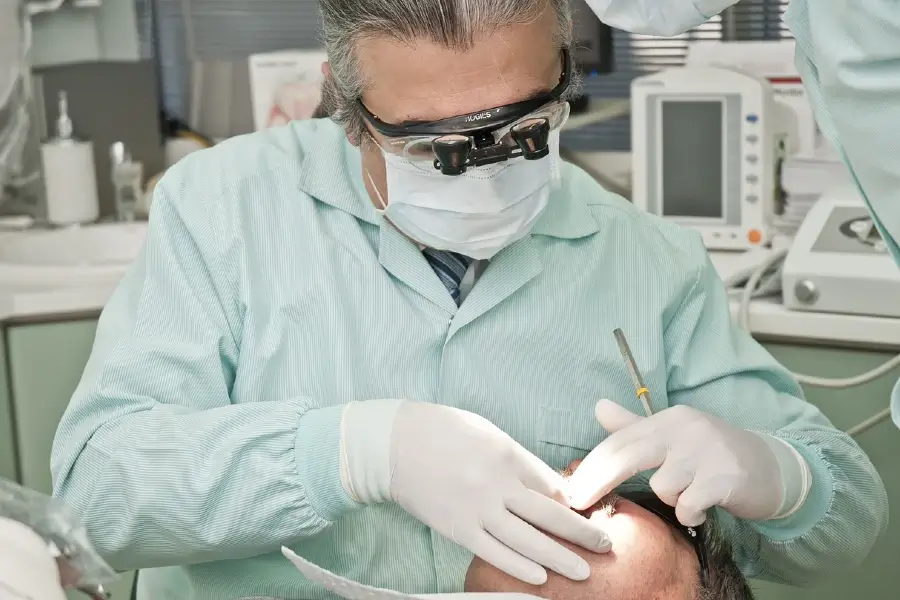Indeed, a burgeoning body of evidence indicates a plausible correlation between erectile dysfunction (ED) and subpar dental health. Here is an analysis of the connection:
The relationship between the mouth and the body:
The oral cavity has a multitude of bacteria, encompassing both beneficial and harmful species. Failure to maintain proper dental hygiene can result in the proliferation of harmful bacteria, which can subsequently cause gum disease, also known as periodontitis. Gum disease can lead to chronic inflammation that extends beyond the mouth. It can potentially impact the entire body by circulating via the bloodstream.
Relationship between Inflammation and Blood Flow:
Gum disease can cause chronic inflammation, harming the endothelial cells that line your blood vessels. These cells are essential for blood circulation throughout the body, including the blood flow required for penile erection.
Research and empirical data:
Heightened Risk: An extensive study has investigated the correlation between inadequate oral hygiene, particularly gum disease, and the onset of erectile dysfunction (ED) in males. Gum disease, or periodontal disease, is a persistent inflammatory illness that impacts the gums and the underlying bone that supports the teeth.
Studies have shown that men who have advanced, untreated gum disease are more prone to encountering challenges in attaining and sustaining an erection.
This inflammatory process has been discovered to have systemic consequences, potentially impacting several body areas, including the vascular system.
Recent findings indicate that the inflammation linked to gum disease may have a role in the onset of erectile dysfunction by affecting the blood vessels that are responsible for supplying blood to the penis.
Studies have shown that men who have advanced, untreated gum disease are more prone to encountering challenges in attaining and sustaining an erection in comparison to individuals with healthy gums and proper oral hygiene.
The relationship between gum disease and erectile dysfunction (ED) is believed to be complex and involves multiple factors. Gum disease can cause chronic inflammation, which can lead to endothelial dysfunction. This dysfunction is a precursor to the development of cardiovascular disease.
The dysfunction of the endothelial cells that form the inner lining of the blood arteries can also impact the vascular function of the penis, which may contribute to the development of erectile dysfunction (ED).
Oral infections can cause systemic inflammation, disturbing the intricate equilibrium of hormones and signaling pathways crucial for the sexual response cycle.
Moreover, the bacteria and chemicals linked to gum disease might directly impair the body’s capacity to sustain optimal sexual function. Oral infections can cause systemic inflammation, disturbing the intricate equilibrium of hormones and signaling pathways crucial for the sexual response cycle. This disruption may result in challenges in attaining and maintaining an erection.
These findings emphasize the need to practice proper dental hygiene and promptly seek treatment for gum disease. Doing so can not only improve oral health but also positively affect overall sexual function and well-being.
Treating the root cause of gum disease may potentially lead to enhancements in sexual health and overall well-being for men with erectile dysfunction.
Enhanced Functionality: Research indicates that addressing gum disease may improve erectile function. Research has shown that males suffering from erectile dysfunction (ED) who underwent therapy for periodontal disease observed enhancements in their sexual function.
Key Factors to Take into Account:
The distinction between correlation and causation is crucial to understand. The research findings indicate a correlation, but this does not necessarily imply causation. Impaired dental health could potentially contribute to the development of erectile dysfunction (ED); however, it may not be the exclusive underlying factor in every instance.
Underlying disorders: Erectile dysfunction (ED) can be attributed to several factors, such as preexisting medical disorders like diabetes or heart disease. It is essential to address these issues to treat erectile dysfunction (ED) adequately.
Although addressing gum disease may enhance erectile dysfunction (ED), it may not be the sole remedy.
Actions You Can Take:
Adhere to Proper Oral Hygiene: To uphold optimal oral health, it is crucial to brush your teeth twice a day, floss every day, and make frequent appointments for dental examinations.
Consult your physician: If you are encountering erectile dysfunction, communicate this issue with your doctor. They can ascertain the underlying reason and provide suitable courses of treatment.
Adopting a comprehensive approach: Although addressing gum disease may enhance erectile dysfunction (ED), it may not be the sole remedy. A physician might suggest an all-encompassing treatment strategy customized to address your requirements.
It is crucial to prioritize dental hygiene to promote general health and, possibly, aid in the management of erectile dysfunction.
If you have concerns regarding erectile dysfunction, it is advisable to discuss them with your doctor promptly. They can offer direction and assist you in attaining a healthier and more satisfying sexual experience.
